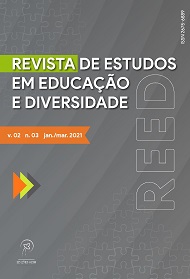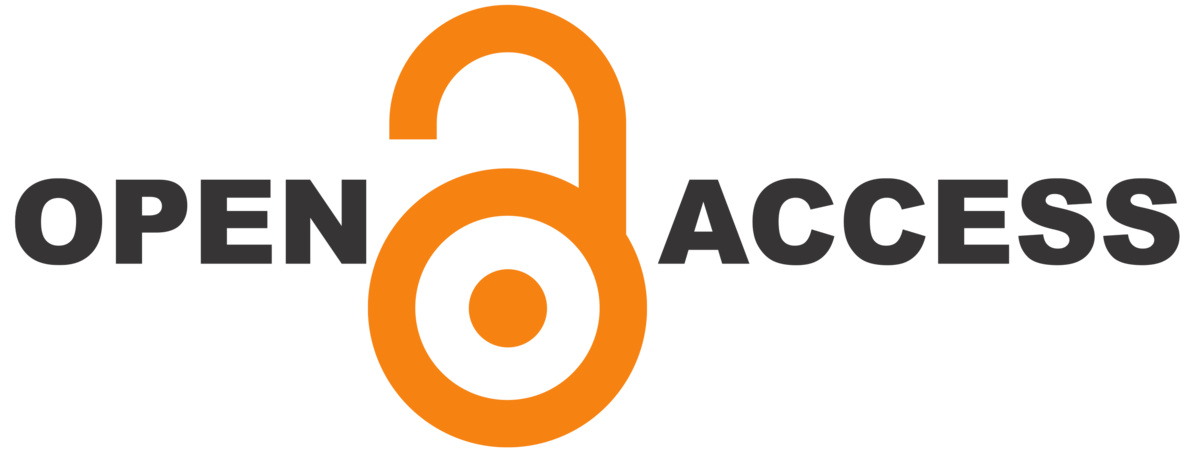INCLUSIVE EDUCATION IN TIMES OF BARBARISM: QUESTIONS ON THE CHALLENGES OF REMOTE EDUCATION
DOI:
https://doi.org/10.22481/reed.v2i3.8134Keywords:
Remote Teaching, Inclusive Education, Virtual Learning EnvironmentsAbstract
Discussing the impacts of remote education is a great challenge, even greater given the specificity of the target audience of Special Education, which through the lens of Critical Theory, was used as a theoretical support to establish a critical panorama about reality. It sought to characterize the discussions through the current laws, in view of the proposal of remote teaching in relation to meeting the educational and pedagogical demands and reflect on their implication in the inclusion of these students in the current context of losses, about the right to formal education. As methodological procedures/instruments, we used document analysis regarding public policies inherent to virtual learning environments, in addition to their design, implementation and reflection on teacher training and its implication in the inclusion of Special Education target students. The results of this research show that the school is moving towards a technological proposal of digital inclusion, but with many weaknesses, making the constant struggle for an inclusive/democratic school, be real against exclusion and barbarism.
Downloads
References
ADORNO, Theodor Ludwig Wiesengrund. Educação e emancipação. São Paulo: Paz e Terra, 2012.
BADIN, Ana Maria Andreola; PEDERSETTI, Simone; SILVA, Melissa Borges da. Educação básica em tempos de pandemia: tentativas para minimizar o impacto do distanciamento e manter o vínculo entre os alunos, as famílias e a escola. In: PALÚ, Janete; SCHÜTZ, Jenerton Arlan; MAYER, Leandro. Desafios da educação em tempos de pandemia. Rio Grande do Sul: Cruz Alta; Ilustração, 2020.p. 123- 38.
BRASIL, Constituição da República Federativa do Brasil. Brasília, 1988.
BRASIL. Parecer CNE/CP nº 11/2020, que trata de Orientações Educacionais para a Realização de Aulas e Atividades Pedagógicas Presenciais e Não Presenciais no contexto da Pandemia.
BRASIL. Lei nº 9.394, 20 de dezembro de 1996. Lei de Diretrizes e Bases da Educação Nacional.
BRASIL. Ministério da Saúde. Covid 19. Painel Coronavírus. Disponível em: https://covid.saude.gov.br. Acesso em: 01 mar. 2021.
CARNEIRO, Moaci Alves. LDB Fácil: leitura crítico-compreensiva, artigo a artigo. Petrópolis, Rj: Vozes, 23 ed. 2017.
CARVALHO, Rosita Edler. Removendo Barreiras para Aprendizagem: educação inclusiva. 11. ed. Porto Alegre: Mediação, 2019.
FREIRE, Paulo. A Importância do Ato de Ler: em três artigos que se completam. São Paulo: Cortez, 2009.
FRANCO, Liliane Repinoski; FRANCO, Lília Sizanoski. Educação especial: reflexões sobre inclusão do estudante com deficiência em tempos de pandemia. In: PALÚ, Janete; SCHÜTZ, Jenerton Arlan; MAYER, Leandro. Desafios da educação em tempos de pandemia. Rio Grande do Sul: Cruz Alta; Ilustração, 2020.p. 179 - 92.
KIRCHNER, Elenice Ana. Vivenciando os desafios da educação em tempos de pandemia. In: PALÚ, Janete; SCHÜTZ, Jenerton Arlan; MAYER, Leandro. Desafios da educação em tempos de pandemia. Rio Grande do Sul: Cruz Alta; Ilustração, 2020.p. 45 - 54.
PEREIRA, Marcela Schild. Reinvenção pedagógica da Unisc em tempos de pandemia: um novo espaço para a educação online. UNISC – Universidade de Santa Catarina, Santa Catarina, 28 abr. 2020.
RAMBO, Nestor Francisco. A Educação em rede em época de pandemia e pós-pandemia: por uma vida mais solidária e de acolhimento, para as epidemias e crises se repetirem menos! In: PALÚ, Janete; SCHÜTZ, Jenerton Arlan; MAYER, Leandro. Desafios da educação em tempos de pandemia. Rio Grande do Sul: Cruz Alta; Ilustração, 2020.p. 107- 22.
Downloads
Published
How to Cite
Issue
Section
License
You are free to:
Share - copy and redistribute the material in any medium or format; Adapt - remix, transform, and build from the material for any purpose, even commercially. This license is acceptable for Free Cultural Works. The licensor cannot revoke these freedoms as long as you follow the terms of the license.
Under the following terms:
Attribution - You must appropriately give credit, provide a link to the license, and indicate if any changes have been made. You may do so in any reasonable way, but not in a way that suggests that you or your use is endorsed by the licensor.
There are no additional restrictions - You cannot apply legal terms or technological measures that legally restrict others to make any use permitted by the license.












